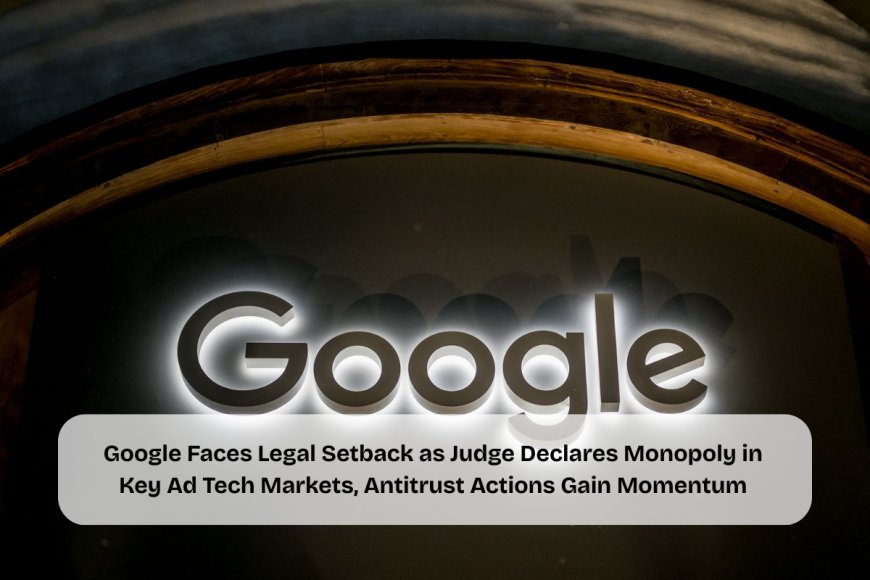Google Hit with Antitrust Ruling Over Ad Tech Monopoly, Faces Potential Breakup
A U.S. judge ruled Google illegally monopolized key ad tech markets, advancing efforts to dismantle its dominance in the digital advertising industry.

A significant legal decision has placed Google's dominance in the digital advertising sector in jeopardy. Google's illegal monopolization of two critical online advertising markets—publisher ad servers and ad exchanges—was determined by a U.S. federal judge on April 17. These platforms are crucial for linking advertisers with websites that display advertisements.
This decision by Judge Leonie Brinkema is a crucial turning point in the U.S. government's ongoing attempt to regulate Big Tech companies through antitrust enforcement. Google was found culpable of dominating these two markets by the court; however, prosecutors were unable to establish that it possessed monopoly power in the advertiser ad network sector.
This decision brings Google one step closer to the potential demise of its advertising business. The U.S. Department of Justice (DOJ) has previously proposed that Google be compelled to sell portions of its ad tech division, particularly its Google Ad Manager.
Google's difficulties are further compounded by the commencement of an additional trial in Washington next week.There, the Department of Justice is advocating for the dissolution of additional components of Google's business, such as potentially compelling the company to sell its Chrome browser and restricting its control over online search.
The next phase of this case will involve a hearing to determine the necessary measures to restore fair competition, which may involve compelling Google to sell assets. No date has been established as of yet.
Prosecutors demonstrated how Google acquired its dominance by acquiring competitors, securing clients, and managing advertising transactions during the trial. In fact, Google even entertained the possibility of selling its ad exchange in Europe in order to reduce regulatory pressure.
This article is based on information from Business Today







